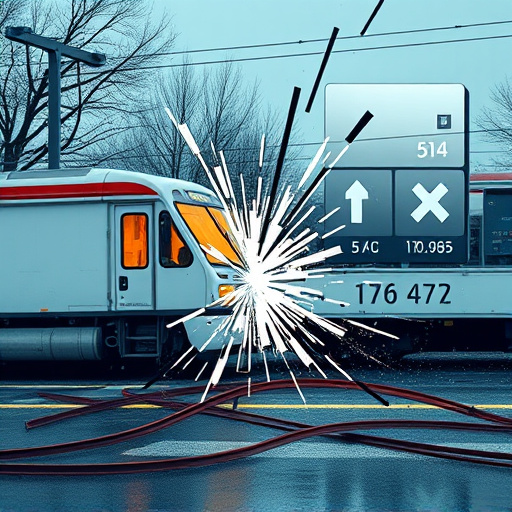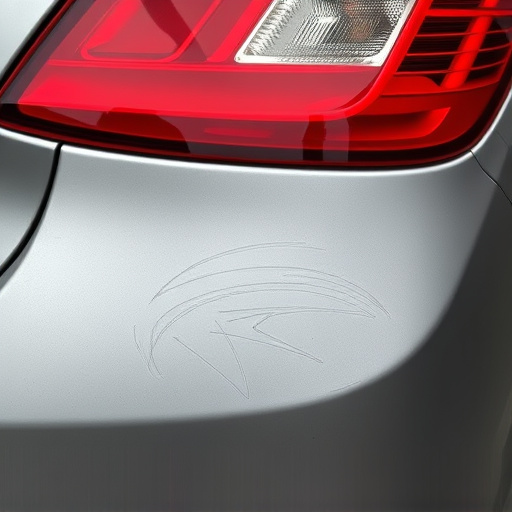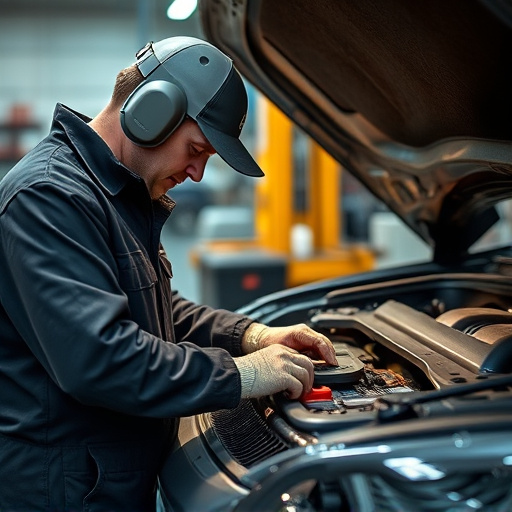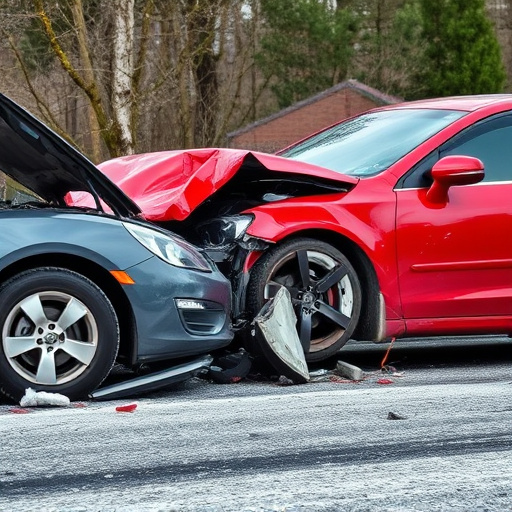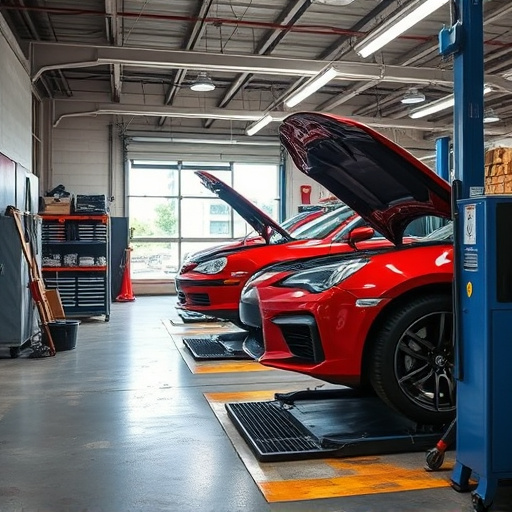Even with minimal visible damage, a car crash can cause internal battery issues. Regular inspections and maintenance extend battery lifespan; corrosion, leaks, or physical damage require immediate replacement. For severe crashes, consult an auto collision center for expert guidance on necessary battery replacements.
Not all car crashes require a new car battery. However, understanding battery damage from accidents is crucial. This guide explores whether and when battery replacement is necessary after a crash. We’ll walk you through assessing signs of damage, explaining when a replacement is vital, and providing step-by-step instructions for safe battery removal and installation. Additionally, learn preventive measures to safeguard against future incidents that could necessitate a battery replacement.
- Understanding Battery Damage After Crashes
- When and How to Replace Your Car Battery
- Preventive Measures for Future Incidents
Understanding Battery Damage After Crashes
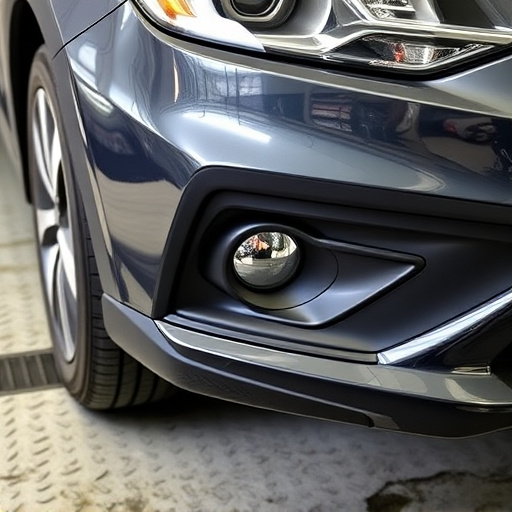
After a crash, it’s natural to focus on immediate safety and damage assessments. However, one critical component often overlooked is understanding the potential impact on your vehicle’s battery. In many cases, a car accident can cause significant internal damage to the battery, even if external signs are minimal. This is because batteries are delicate components housed within tight spaces, making them susceptible to shifts or impacts during a collision.
While some batteries may function normally immediately after a crash, this doesn’t guarantee their long-term reliability. Over time, small cracks or internal shorts caused by the impact can lead to reduced battery life and increased failure rates. Thus, while car paint services and dent removal are often priorities, considering a battery replacement after a crash is equally vital for maintaining your vehicle’s overall health and performance.
When and How to Replace Your Car Battery
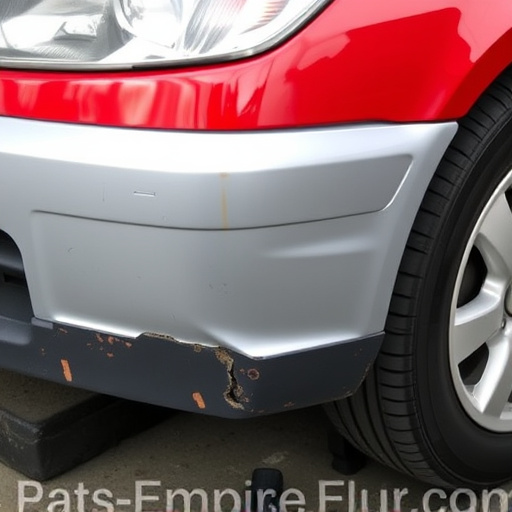
After a crash, many drivers wonder if they need to replace their car battery. While it’s true that a collision can weaken or damage the battery, not every incident requires an immediate replacement. It depends on the severity of the impact and how well your vehicle has been maintained. If you’ve experienced a minor fender bender with no significant structural damage, your battery might still function properly. However, if the crash led to a total vehicle disruption, causing components to shift or disconnect, it’s crucial to get the battery checked by an auto collision center.
In many cases, a simple inspection and testing can determine if the battery needs to be replaced. If it shows signs of corrosion, leaks, or physical damage, it should be replaced as soon as possible for safety reasons. Otherwise, consider regular maintenance practices like cleaning corrosion from terminals and checking voltage levels to prolong its lifespan. Remember that even with proper care, batteries have a limited shelf life, so staying proactive can help you avoid unexpected breakdowns. For severe crashes or if you’re unsure, consult a professional at an auto collision center for guidance on battery replacement or scratch repair services as needed.
Preventive Measures for Future Incidents
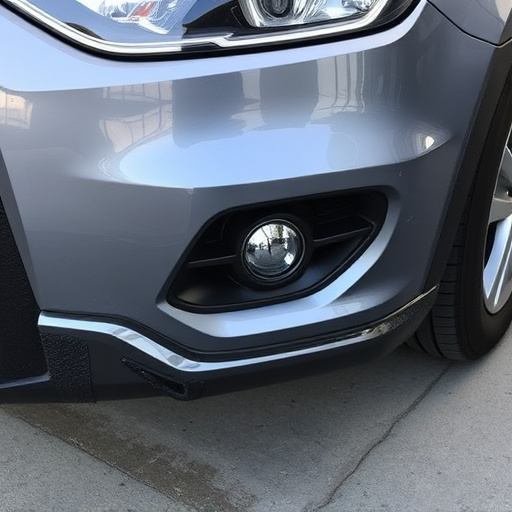
While the immediate concern after a crash might be assessing damage and seeking luxury vehicle repair services, one critical aspect often overlooked is the state of your car’s battery. Battery replacement after a crash isn’t always necessary, but taking preventive measures can significantly reduce future incidents. Regularly checking and maintaining your battery can help ensure it retains its strength and longevity. This includes keeping it clean, inspecting for any signs of corrosion or damage, and ensuring it’s properly charged.
Consider visiting a collision repair center for professional advice on battery health. They can provide guidance tailored to your vehicle’s make and model, recommending replacements only when absolutely necessary. By doing so, you’ll not only save costs but also avoid unnecessary disposal of perfectly good batteries. Remember, preventive care is key; just as you’d get regular oil changes for optimal engine performance, maintaining your battery can keep your vehicle running smoothly post-crash and beyond.
While it’s a common misconception that every car battery needs replacement after a crash, the reality is more nuanced. Damage varies greatly depending on the severity and type of impact. Regular maintenance and inspection can extend battery life significantly. While battery replacement might be necessary in some cases, prioritizing preventive measures like regular testing and keeping your vehicle maintained can often avert the need for costly and frequent replacements. Understanding your battery’s health and taking proactive steps can save you money and keep your car running smoothly.

